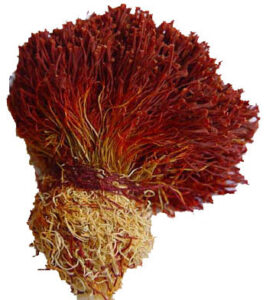
Thyme benefits , fact and information is written in this article.
Thyme (Thymus vulgaris L.), belonging to the Lamiaceae family is a wonderful herb commonly used as a cooking ingredient and herbal medicine. The leaves and flowering tops are used fresh and dried with a pleasant, pungent, clover flavor.
History of thyme
Thyme originates from Southern Europe and Mediterranean countries but now is found in many areas of the world with temperate climates.
Thyme’s reputation as a healer goes back more than thousands of years. Thyme has been widely known as one of the most used herbs since as far back as ancient Egypt.
Thyme has been known for its culinary, magical and medicinal virtues. The Romans thought that eating thyme before a meal would cure poisons. They also believed that adding thyme to their bath water would impart energy. They also included thyme in bedding to prevent nightmares. Thyme was also often given to Roman soldiers upon their leaving for battle, as a sign of courage.
Greek men would rub the herb on their body. The strong scent of thyme was employed as a moth repellent. Thyme has been recognized for its antiseptic properties. The herb was among those burned in sickrooms to help stop the spread of illness.
Cultivation
Thyme is native to Eurasia and is cultivated all over the world. It is a low-growing perennial that grows especially well in dry, sunny conditions. But Successful growing of most thyme species is possible in any climate having annual temperature from 8 to 20°C. Thyme can be planted at almost any time. In fact, it has no special needs when it comes to temperature and humidity, and can thrive through most months of the year until there is frost.
Some fertilizers increase the yield of thyme crop.
Culinary Use
Thyme is cultivated, both commercially and in home gardens, as a culinary herb. Thyme is most commonly paired with rosemary, but it actually goes well with a variety of other spices, like oregano and garlic seasoning. Thyme’s culinary uses are many. Because of its aroma, this spice is often added to egg dishes, seafood, meats, salads, and in marinades of chicken. Thyme also contributes flavor to a variety of vegetable preparations, such as potatoes, Onions, and beans.
Antimicrobial Properties or benefits of thyme
Thyme is considered to have preservative and antiseptic and properties and has long been used medicinally. Thyme essential oil strongly inhibited the growth of the strains of bacteria tested. Many researches acknowledge that oregano and thyme have the potential of an effective alternative treatment against Salmonella spp., especially those strains resistant to synthetic antimicrobials.
Important Species and Cultivars of thyme
- – Woolly thyme (Thymus pseudolanuginosus): This varietal has no scent, so it’s not used for cooking.
- – Golden lemon thyme (Thymus x citriodorus ‘Aureus’): This thyme has a lemon scent in addition to the minty quality of thyme.
- – Caraway thyme (Thymus herba-barona): This thyme is low-growing, with the scent of caraway and pink flowers.
- – Creeping thyme (Thymus praecox): this varietal grows as a low mat, with pink, white or lavender flowers.

